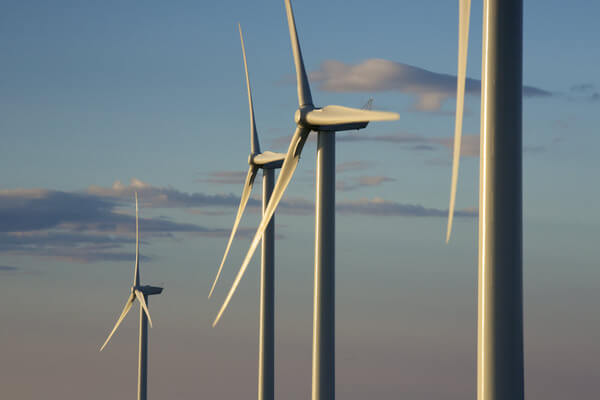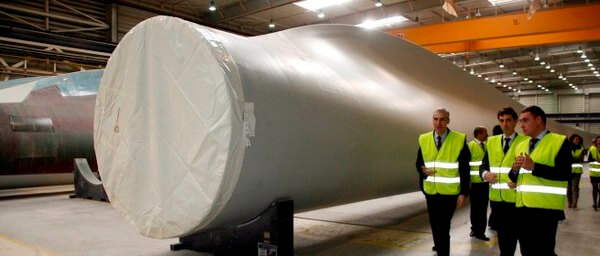News Release from windfair.net
Wind Industry Profile of
Power to the People: Indian Girl Points Finger At Problems of Climate Protection
With its 1.3 billion inhabitants, India is the country with the largest population in the world after China. And some predictions even say that as early as 2020 there will be more Indians than Chinese. As fast as the population is growing, the Indian industry is, too, requiring more and more energy. Over the past decades, India has focused mainly on coal, which accounts for more than 50% of the energy mix. However Narendra Modi's election as prime minister in 2014 has been marked as a new beginning.
The current Indian government has rapidly begun to invest quite heavily in the expansion of renewable energies and called for ambitious plans. First there was a focus on the Paris Climate Agreement and the obligation to purchase 40% of the energy supply from non-fossil ressources by 2030 . At the end of last year, another plan with even more ambitious goals was presented. According to Eco-Business, the subcontinent wants to build 275 gigawatts of renewable energies and a further 85 gigawatts of non-fossil ressources such as nuclear energy within the next ten years. This would increase the share of non-fossil fuels in the electricity mix to about 57 percent in 2027.

India is among the countries with the largest yearly addition of wind energy. German turbine manufacturer Senvion, too, was owned by Indians in the past. (Image: Senvion)
But the country still struggles with the lack of grid connections in many places – if there is a grid present at all. Large parts of the population, especially in rural countrysides far from the metropolitan areas, often still have no access to electricity and running water. In addition, storage capacities are missing, which leads up to one fifth of the generated renewable energy being wasted according to experts.
People in the rural areas are particularly affected by climate change. The state of Uttarakhand, where 9-year-old Ridhima Pandey lives, is located in the north of India on the borders with Tibet and Nepal, and has been haunted by heavy rains, floods and landslides in recent years. Thousands of people died, as the girl and her father Dinesh Pandey, who works for an NGO, reported to the British Independent. That's why Ridhima has filed a lawsuit with a court specializing in environmental protection. After signing the Paris Climate Agreement, there is still not enough done by the government to actually implement their action.
In 2016, India, which is the world's third largest producer of climate-damaging CO2, was already at the forefront of wind and solar energy statistics. As figures published by the International Renewable Energy Agency IRENA show, almost 4,000 megawatts of wind energy and another 4000 megawatts of solar energy were installed there last year. This means that India is among the top 5 countries in terms of renewable energy growth – in addition to industrial nations such as the US and Germany.
However, this is not to be noticed anywhere in the countryside. Wind power expansion is currently concentrated on the state of Andra Pradesh on the southeast coast of the country. The wind-rich region has attracted many wind energy companies in the recent past. At the beginning of the year, turbine manufacturer Gamesa inaugurated another rotor blade factory, being their third company in India, since the government has facilitated market access for foreign investors in the course of its focus on renewable energies. And the market is booming with Gamesa already having a market share of 34 percent.

A rotor bade factory of Gamesa (Image: Gamesa)
German wind turbine manufacturer Senvion is also active in the Indian market. At the end of last year, the Hamburg company succeeded in winning a large contract for the construction of 500 megawatts, whereby the takeover of Indian company Kenersys should have facilitated market access. Senvion CEO Jürgen Geissinger said: "Earlier this year [2016] we announced our decision to enter the Indian market. Now we are proud to present this firm framework agreement that is the start of a strong future cooperation. This contract emphasizes our planned story of growth in India."
In addition to wind energy, the solar industry is booming – but the sector has also concentrated on only a few regions: In just six of the 29 federal states more than 80 percent of all solar capacities are installed. This includes Tamil Nadu, one of the highly industrialized states of India in the southeast. The world's largest solar farm was opened there last year, which can supply 150,000 people with its 648 MW power.
The fact that the possibilities for renewable energies in India would be much greater if the government finally began investing in climate protection in less developed regions is one of the points that 9-year-old Ridhima Pandey wants to draw attention to. It remains to be hoped that she will be as successful as Malala Yousafzai.
- Author:
- Katrin Radtke
- Email:
- press@windfair.net
- Keywords:
- India, wind energy, solar energy, grid, storage



























